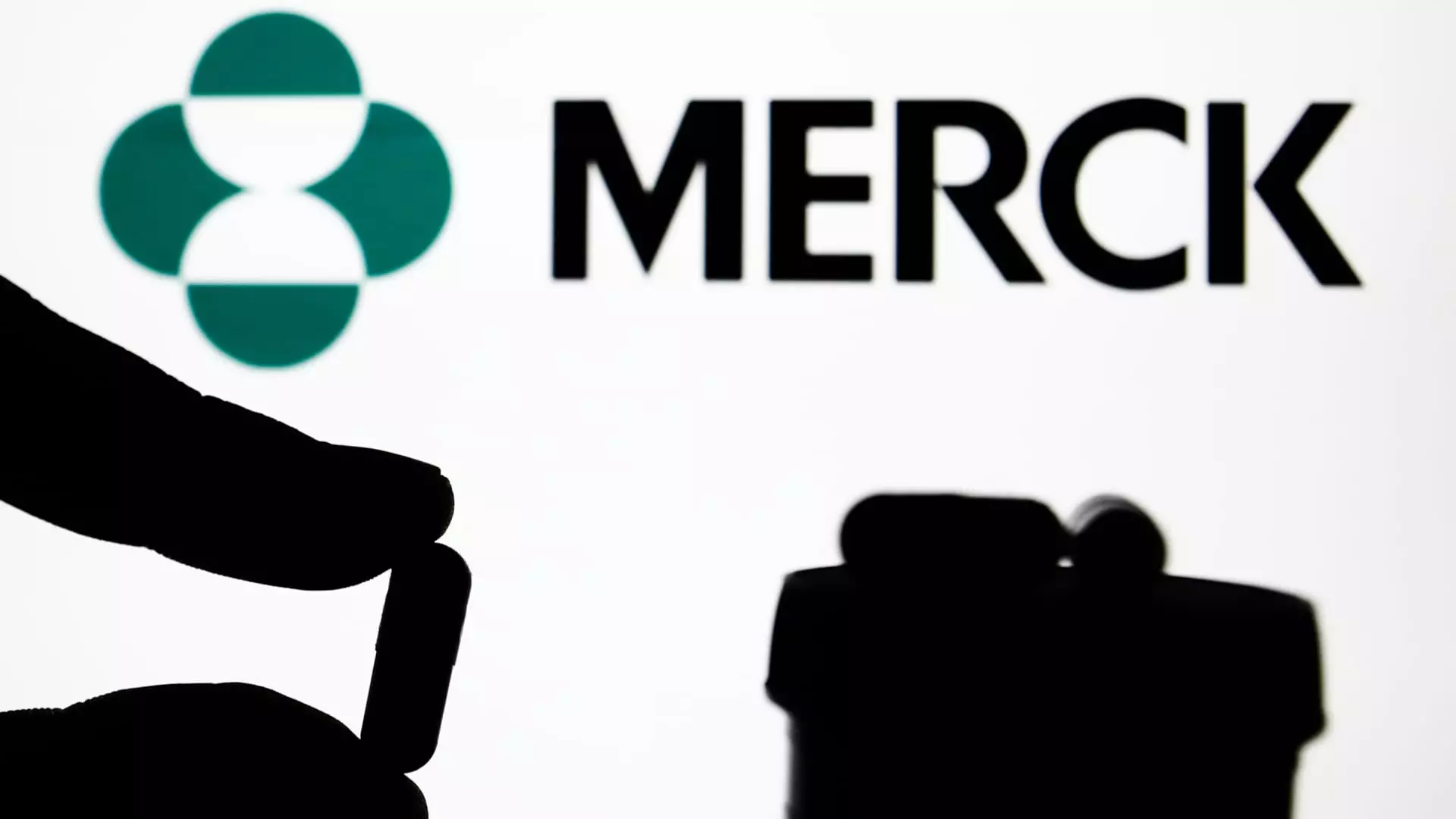On Thursday, Merck unexpectedly disclosed a reduction in its full-year profit guidance. The company now projects its adjusted earnings for 2025 to fall between $8.82 and $8.97 per share, a marginal decline from its previous estimates of $8.88 to $9.03. The culprit behind this reduction? An alarming $200 million in anticipated costs related to tariffs and a financial hit stemming from a recent licensing deal. Such a shift not only impacts investor sentiment but raises critical questions about Merck’s ability to navigate a turbulent global market.
This revised outlook reflects a concerning reliance on fluctuating international trade policies. With ongoing tensions between the U.S. and China, as well as complex relations with Canada and Mexico, Merck faces headwinds that could distort its financial landscape. Given that China is one of Merck’s most important operational territories—housing vital manufacturing and research developments—the repercussions could be dire if these geopolitical challenges continue to evolve unfavorably.
The Tariff Conundrum: A Double-Edged Sword
Compounding the financial forecasts are tariffs imposed by various governments, particularly those stemming from the U.S.-China trade war initiated under former President Trump’s administration. While Merck has been proactive in fortifying its domestic manufacturing by earmarking a staggering $12 billion in U.S. manufacturing and research, the burden of tariffs looms large. The company’s commitment to investing an additional $9 billion in U.S. operations by 2028 is commendable, yet the existential question remains: will these tariffs stifle profitability in the long run?
Moreover, the fact that the current financial guidance excludes potential pharmaceutical tariffs under consideration adds another layer of uncertainty. The unsettling prospect of escalating manufacturing costs and hindered supply chains could lead to increased prices for consumers, indirectly harming patient access to essential medicines. A medical industry like Merck’s, which thrives on trust and accessibility, risks damaging its reputation if these tariffs lead to patient care becoming a financial burden.
Emerging Drugs: A Silver Lining or Just a Band-Aid?
Despite the profit gloom, Merck also reported a strong first-quarter performance, surpassing analyst expectations. Revenue surged to $15.53 billion, driven primarily by its oncology portfolio and animal health products. Notably, two recently launched drugs, Winrevair and Capvaxive, have generated increased sales, which Merck bills as pivotal for compensating for the expected drop in revenue from its flagship cancer drug, Keytruda, when it loses exclusivity in 2028.
Yet, while the positive growth in these new drugs is commendable, relying on them as a panacea for broader financial malaise seems perilous at best. Pharmaceutical companies are no strangers to the inherent unpredictability of new drug performances and market acceptance. Essentially, can Merck genuinely depend on these newly minted products, or is it merely throwing the proverbial grass clippings onto a rapidly spreading fire?
Challenges with Gardasil: A Public Health Concern
High on the list of challenges is Merck’s vaccination product, Gardasil, which has faced a significant meltdown in sales due to declining demand in China. Shipments of Gardasil were suspended in February due to geopolitical complications, raising alarms about access to this crucial vaccine. Merck recorded $1.33 billion in Gardasil sales for Q1—a staggering 41% decrease compared to the same period in 2024—underscoring how external factors can derail even the most well-laid plans in the pharmaceutical industry.
Moreover, the backdrop of China’s retaliatory tariffs poses potential ethical quandaries, with prices for essential medicines likely to rise, thereby limiting access for those in need. As a global corporate citizen, Merck must recognize its responsibilities in ensuring affordable healthcare, especially for vulnerable populations reliant on preventive medicines.
Animal Health Division: A Bright Spot Amidst Gloom?
In an unexpected twist, Merck’s animal health division displayed robust growth, posting nearly $1.59 billion in sales—an increase of 5% from last year. This growth is considered a beacon of hope in an otherwise turbulent financial forecast. However, the strength of this sector cannot eclipse the potential fallout in Merck’s more lucrative prescription drug market. With ongoing scrutiny regarding the rising costs of healthcare, can the animal health gains genuinely offset significant losses from other divisions?
Merck’s fate hangs on a precarious balance, teetering between impressive portfolio expansion and the daunting shadows cast by international trade policies. The challenges ahead are not just financial; they touch on crucial ethical and public health concerns that Merck must continue to address with honesty and integrity. In this rapidly changing landscape, will Merck rise to the occasion, or will it falter under the weight of its circumstances? The answer could redefine its position in the global pharmaceutical market for years to come.

